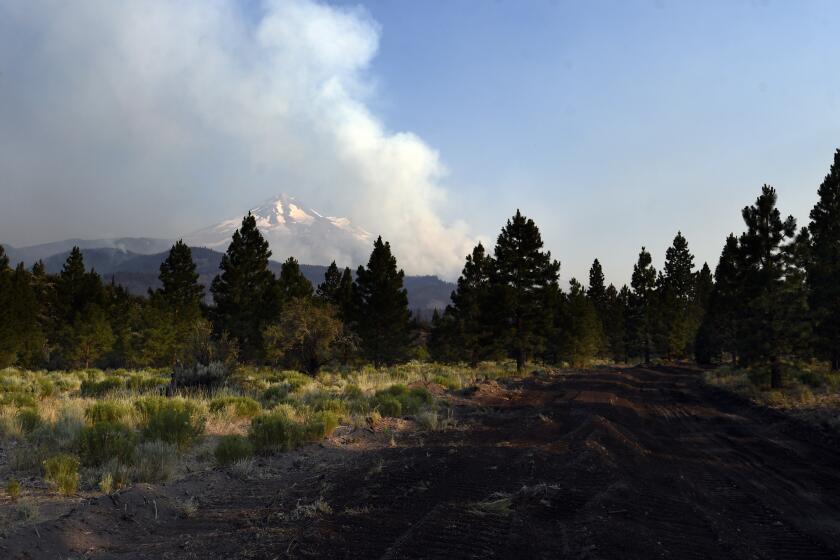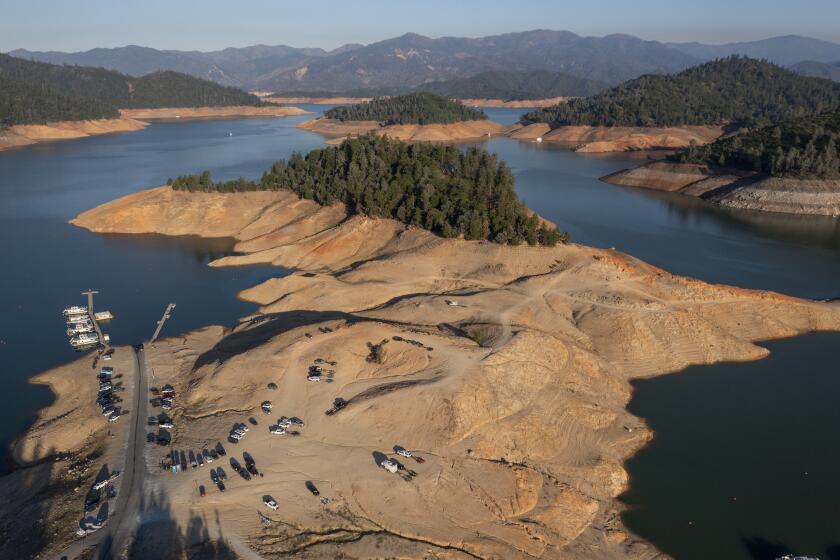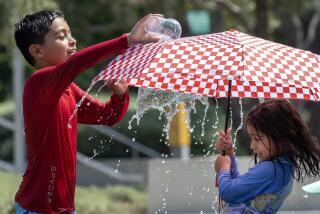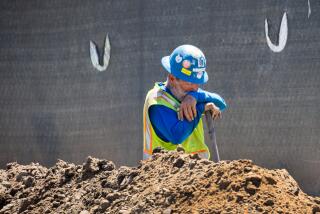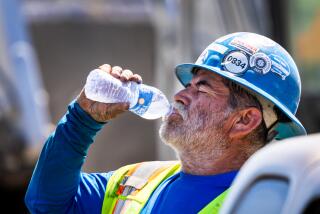Intense heat wave arrives: Expect dangerous temperatures for days

- Share via
A heat wave is bearing down on California over the next few days, and forecasters warn it will bring dangerous conditions.
The high-pressure system will keep the coastal areas mild but bring blazing temperatures inland and to the desert areas.
Here is what you need to know:
Timing
The heat wave is ramping up Thursday and will continue across the inland areas into next week, bringing triple-digit temperatures to many parts of the region.
The National Weather Service has issued excessive heat warnings across portions of Southern California, including the San Diego County deserts, Coachella Valley, Antelope Valley, interior San Luis Obispo County and the Cuyama Valley. Saturday will likely be the warmest day overall, forecasters said.
The Apple and Lucerne valleys are preparing for temperatures that could climb as high as 120 degrees by the weekend — potentially the hottest of the year so far.
The extreme heat could reduce relative humidity levels to as low as 10%.
Southern California: Coastal areas will get a break, with temperatures for the most part staying below 80 degrees. But the heat in the L.A. Basin will push into the 80s and low 90s, and closer to 100 degrees inland. It will be even hotter in desert areas. Temperatures could reach 100 to 112 degrees in the Antelope Valley and the interior of San Luis Obispo County.
Central Valley: Extreme heat is on tap, with temperatures expected above 110 degrees by Friday and through the weekend for many communities.
Excessive heat watches and warnings have been issued across Southern California, officials said, where triple-digit temperatures could soon meet very dry conditions.
Fire danger
High temperatures and bone-dry vegetation amid a year of little rain will bring heightened fire danger.
“Vegetation is very dry on the hillsides because we’ve had two very dry years in a row,” said meteorologist David Sweet with the National Weather Service in Oxnard, “and we’re also looking at 111 degrees. Any time you have hot temperatures, that’s also a contributing factor.”
Firefighters have been battling fires big and small all week, the worst of which are in Northern California.
“When we get into the hottest period of the year in the summer, really high temperatures can definitely drive up the fire danger,” said Bruno Rodriguez, a meteorologist with the National Weather Service in San Diego. “What they can do is basically make the atmosphere more unstable.”
A worsening drought is further drying out parched vegetation, which could be fuel for a disastrous fire season.
Tips
To stay cool in the coming days, officials recommend the following:
- Drink plenty of fluids.
- Stay in air-conditioned rooms or shade as much as possible.
- Do not leave children or pets unattended in vehicles.
Among other tips from the National Weather Service:
- Wear light-colored and loose-fitting clothing.
- Reschedule strenuous activities to cooler hours in the morning and evening.
Some general tips from county health officials:
- Avoid the sun and stay in a cooled indoor place from 10 a.m. to 3 p.m.
- If you don’t have air conditioning or can’t afford to run it, take a cool shower twice a day and go to a cooling center or other air-conditioned location. Even a shaded yard or park is better than staying inside.
- Stay extra hydrated. During a heat wave, that means drinking two to four glasses of water every hour.
- Avoid alcohol, reduce physical activity, and don’t exercise outdoors during the hottest hours of the day. If you must work outside, make sure to drink juice or sports drinks to replenish the salts and minerals that your body loses when you sweat.
- Wear loose-fitting, light-colored clothing and a hat if you go outdoors.
- Check on your neighbors, friends and relatives, particularly if they are elderly or don’t have air conditioning.
More to Read
Sign up for Essential California
The most important California stories and recommendations in your inbox every morning.
You may occasionally receive promotional content from the Los Angeles Times.
